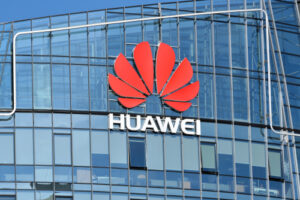
U.S. Reps. Michael McCaul (R-TX) and Cathy McMorris Rodgers (R-WA) led eight of their GOP colleagues in calling on the U.S. Commerce Department to ding Huawei Technologies Co. for U.S. export control violations.
Huawei reportedly has developed a smartphone containing 7-nanometer chips capable of supporting 5G produced by the Chinese state-owned Semiconductor Manufacturing International Corp. (SMIC). And due to the ubiquity of U.S. origin technology throughout the semiconductor supply chain, such reports suggest a violation of U.S. export control regulations, according to a Sept. 14 letter the lawmakers sent to U.S. Commerce Department Bureau of Industry and Security (BIS) Under Secretary Alan Estevez.
“The circumstances before us demonstrate the need for additional pressure and more effective export controls on our adversaries. We need to enforce laws under your authority against them and not play into their hands,” wrote Rep. McCaul, Rep. McMorris Rodgers, and their colleagues. “Times have changed in our relations with China. It is beyond time for our bureaucracy to as well.”
Among the members who joined the representatives in signing the letter were U.S. Reps. Ann Wagner (R-MO), Robert Latta (R-OH), Young Kim (R-CA), and Brian Mast (R-FL).
The lawmakers pointed out that they “are extremely troubled and perplexed” about the BIS’s inability to effectively write and enforce export control rules against violators, especially China.
“For more than two years, our committees and numerous members of Congress have written you regarding loopholes in BIS rules attempting, unsuccessfully, to restrict technology to Huawei and SMIC, among others,” they told Estevez. “Despite this knowledge and continued congressional pressure to adopt stricter policies, BIS has continued to grant licenses to Chinese Communist Party (CCP) controlled companies, such as SMIC, worth hundreds of billions of dollars.
“These companies support the CCP’s military and have been responsible for manufacturing semiconductors that power Huawei’s 5G devices, in violation of BIS’ export controls,” the members wrote.
The primary goal, they added, should be for the Commerce Department to prevent malign actors from obtaining or diverting sensitive technologies. Toward that goal, they said the department should immediately take several actions, including to establish a sanctions authority under the International Emergency Economic Powers Act focused on Chinese companies that “flout U.S. technology controls, and leverage this authority to designate SMIC and Huawei with full blocking sanctions.”
Additionally, the department should exercise specific authority to bar the import of SMIC-produced semiconductors, particularly those that pose risks to national security, into the United States, and place SMIC, Huawei, and all of their subsidiaries on the Entity List, wrote the lawmakers.
The department also should implement a policy of denial for all items subject to the Export Administration Regulations for Huawei and all of its subsidiaries, spin-offs, and successors; revoke all existing licenses for SMIC and Huawei; and pursue criminal charges against executives from SMIC and Huawei, according to their letter.
The lawmakers also requested a briefing led by BIS in coordination with the offices at the U.S. Departments of Defense, State, and Energy, which oversee export controls regarding the national security implications of China’s violations and circumventions of U.S. export controls. They want the briefing held by Sept. 28, according to their letter.



